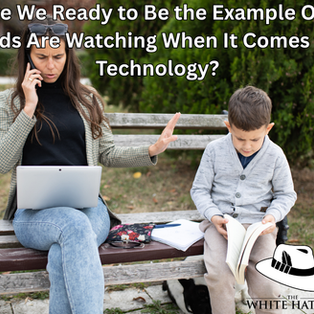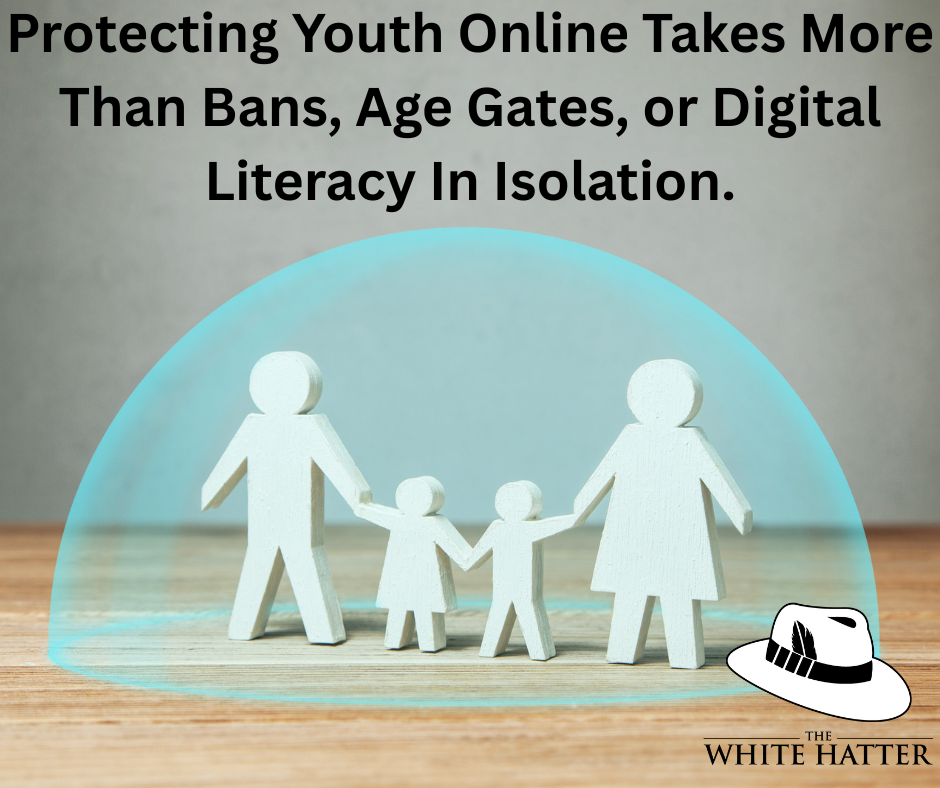Our Thoughts to Addressing AI in Schools: A Sample Message For Your Principal
- The White Hatter

- Jul 24, 2025
- 3 min read

As the new school year approaches, discussions around using artificial intelligence in classrooms are likely to gain more traction. Should parents and caregivers be paying attention? Absolutely! That said, we believe our approach to engaging principals and teachers on this topic helps reduce emotional reactions, and promotes a more balanced understanding of both the risks and benefits.
If we were to write a letter to our child’s school about the use of AI in the classroom this coming school year, what would that look like? Well here’s our thoughts on what the balanced content of such a letter should be. Please feel free to use this letter as a template to send to your school, as we are making it “Creative Commons”
Digital Food For Thought
The White Hatter
Facts Not Fear, Facts Not Emotions, Enlighten Not Frighten, Know Tech Not No Tech
Dear [Principal NAME],
As a parent (or caregiver) of a child at [ENTER SCHOOL NAME], I want to express my support for the responsible age and developmentally appropriate integration of technology and artificial intelligence (AI) into our school community, which we know can be a polarizing topic. AI is already shaping the future of work, education, communication, and creativity. My child deserves to be prepared for this reality, not by avoiding the technology, but by learning how to engage with it thoughtfully, ethically, and safely in an age and developmentally appropriate way.
Introducing AI literacy at an early age doesn’t mean giving young students unrestricted access to advanced tools like ChatGPT. It means helping them understand what AI is, how it works, where it appears in their everyday lives, and what its strengths and limitations are. By starting these conversations under the guidance of trained educators, we can equip students with the critical thinking skills they’ll need to navigate an AI-driven world.
Contrary to some public concerns, there is growing research showing the benefits of AI in education, when implemented with intention, oversight, and sound pedagogy in the classroom. (1)(2)(3)(4) Studies have shown that AI tools can:
Support students with diverse learning needs, including those with disabilities or language barriers
Provide personalized learning experiences and real-time feedback
Help teachers identify learning gaps and adapt instruction more effectively
Encourage exploration and creativity, particularly in areas like writing, coding, and design to name a few.
As an example, world renowned Khan Academy has developed an AI platform called “Khanmigo” that is designed specifically to enhance learning and critical thinking, which they are now making available to schools at a very reasonable cost. (5)(6)
At the same time, there are valid concerns about AI misuse, bias, or over reliance. (7)(8)(9) These concerns can and should be addressed through teacher training, strong classroom practices, clear boundaries around how and when AI is used, and robust privacy protections. Digital literacy, including AI literacy, should be treated as a core life skill. Just as we teach students how to analyze media or identify misinformation, we must also teach them how to question AI-generated content and understand the data that shapes it.
To support the safe and developmentally appropriate use of AI in the classroom, our family would forward these recommendations for your consideration:
Develop clear, age-specific guidelines for which AI tools are used and how
Provide training for teachers on ethical AI use and digital literacy instruction
Engage parents by offering opportunities to learn alongside their children
Prioritize student privacy and select AI tools that meet strict data protection standards
Emphasize critical thinking, media literacy, and human oversight in all AI-related lessons
We can’t let fear or unfamiliarity stand in the way of preparing students for the world they’re already growing up in. With the right approach and scaffolding, schools can help young people build the confidence, knowledge, and ethics they’ll need to use AI wisely, not just as future professionals, but as thoughtful and informed onlife participants.
As my child’s parent (or caregiver), I would welcome the opportunity to support you and the school in this work. Please let me know how I can be involved.
Thank you for your continued leadership and commitment to preparing our students for the future.
Sincerely,
[Your Name]
[Your Contact Information]
References:














